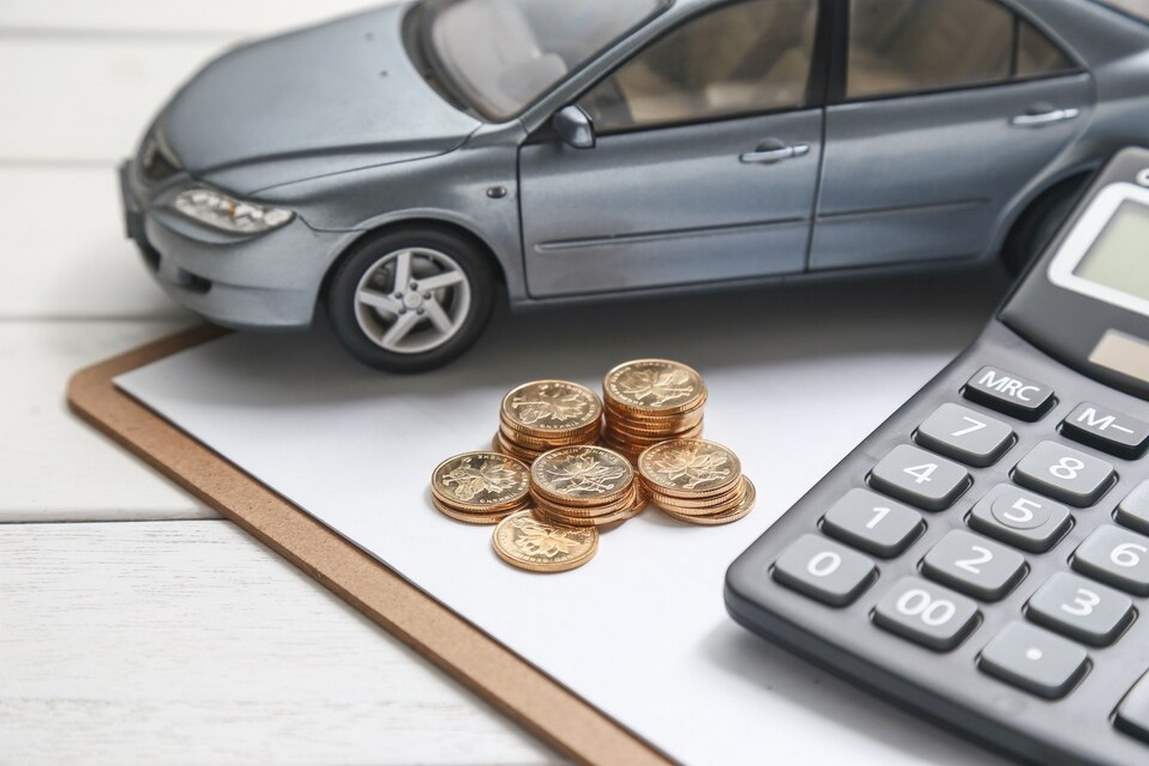Ah, the car valuation conundrum—a puzzle wrapped in a riddle, served with a side of automotive jargon. Whether you’re itching to upgrade your ride or simply curious, understanding how much your car is worth and the intricacies of trade-in value is essential. This journey will demystify the labyrinth of car worth and reveal how trade-in values are calculated, making you a savvy player in the automotive arena.
Why Knowing Your Car’s Worth Matters
Ever wondered why knowing your car’s value is more than just a fun fact? It’s akin to holding a financial ace up your sleeve. Understanding your vehicle’s worth can save you from being shortchanged when you decide to trade it in or sell it outright. Moreover, it empowers you with negotiation prowess and ensures you don’t fall prey to unscrupulous dealers. Think of it as a way to turn your car from a depreciating asset into a potential windfall.

The Basics of Car Valuation
What Goes into Determining a Car’s Worth?
Determining a car’s worth is like cooking a gourmet meal—several ingredients come into play. It’s not just about the make and model but also includes factors such as mileage, condition, age, market demand, and more. These elements blend together to create a valuation that reflects both the tangible and intangible aspects of your vehicle.
Key Factors Affecting Your Car’s Value
Mileage: The Odometer’s Impact on Your Car’s Worth
Mileage is the automotive equivalent of the mileage on your treadmill—more miles generally equate to more wear and tear. Cars with higher mileage often face greater depreciation because they’ve seen more action on the road. Conversely, a low-mileage vehicle is usually seen as a younger, more promising prospect, and can command a higher price. Remember, each mile can subtly shift your car’s value.
Condition: From Like New to Needs Work
The condition of your car plays a pivotal role in its valuation. A pristine, well-maintained vehicle can be worth significantly more than one that’s seen better days. When assessing condition, dealers and buyers consider everything from exterior blemishes and interior wear to mechanical issues. Regular maintenance and a spotless appearance can elevate your car’s worth from “needs work” to “like new.”
Age of the Vehicle: Does Age Really Matter?
Age is more than just a number in the world of car valuation. Newer models generally hold their value better due to advanced technology, improved fuel efficiency, and less wear. However, certain classic or vintage cars might appreciate with age, provided they’re well-maintained and sought after. In essence, age matters, but it’s not a one-size-fits-all scenario.
Market Demand: The Role of Trends and Preferences
Market demand can be as fickle as a fashion trend. If your vehicle is in high demand—say, a popular SUV during a gas price surge—its value could rise. Conversely, if it’s an unpopular model or out of vogue, you might find yourself struggling to fetch a good price. Keeping an eye on market trends can give you a significant advantage in understanding your car’s worth.
Vehicle History Report: How Past Mishaps Affect Value
A vehicle history report is akin to a car’s report card. It details past accidents, service history, and other critical information. A clean history can boost your car’s value, while a report marred with accidents or major repairs can depreciate it. Buyers and dealers scrutinize these reports closely, so a blemished history could be a red flag in the valuation process.
Trade-In Value Explained
What Is Trade-In Value, and Why Should You Care?
Trade-in value is the amount a dealer offers you for your vehicle when you trade it in towards the purchase of another car. It’s different from the sale value you’d get if you sold the car privately. Understanding trade-in value helps you gauge whether you’re getting a fair deal and allows you to factor it into your budgeting for a new vehicle.
How Trade-In Value Differs from Sale Value
While trade-in value and sale value are often used interchangeably, they are distinct. Trade-in value is typically lower than sale value because dealers need to resell the car and cover their margins. On the flip side, selling privately might get you a higher price, but it comes with its own set of challenges, such as finding a buyer and handling negotiations.
Factors Influencing Trade-In Value
Dealer’s Perspective: What Are They Looking For?
Dealers have a keen eye for value, and they look for specific attributes when appraising a trade-in. They assess the car’s condition, mileage, demand, and even the potential resale value. Understanding what dealers prioritize can help you present your car in the best light and potentially increase your trade-in offer.
Negotiation Tips: Maximizing Your Trade-In Value
Negotiation isn’t just for the boardroom—it’s vital when trading in your car. Researching your car’s worth, knowing the dealer’s margins, and being ready to negotiate can significantly enhance your trade-in value. Aim for transparency, provide all necessary documentation, and don’t be afraid to push for a better offer.
Preparing Your Car for Trade-In: A How-To Guide
Cleaning and Detailing: First Impressions Count
First impressions matter, even in car trade-ins. A thorough cleaning and detailing can make your vehicle look more appealing and possibly increase its value. Remove clutter, clean the interior, polish the exterior, and make sure your car looks as close to showroom condition as possible.
Fixing Minor Repairs: The Small Stuff That Makes a Big Difference
Minor repairs, such as fixing dents, replacing worn-out tires, or addressing small mechanical issues, can have a surprisingly positive impact on your car’s trade-in value. These small enhancements can make your vehicle more attractive to dealers and might help you secure a better offer.
Gathering Essential Documents: What You’ll Need
Before heading to the dealership, gather all essential documents. This includes your car’s title, registration, service records, and any warranties. Having these documents ready demonstrates that you’re a responsible owner and can facilitate a smoother transaction.
Researching Your Car’s Value: Tools and Resources
Online Valuation Tools: A Deep Dive into Kelly Blue Book and Others
Online valuation tools, like Kelley Blue Book, Edmunds, and NADA Guides, are invaluable resources for determining your car’s worth. These tools provide estimated values based on make, model, year, mileage, and condition. They offer a starting point for negotiations and give you a benchmark to work from.
Comparing Trade-In Offers: How to Get the Best Deal
Once you have a sense of your car’s value, it’s wise to get trade-in offers from multiple dealers. Comparing these offers can help you identify the best deal and avoid settling for less. Be sure to evaluate each offer in the context of your car’s condition and the current market demand.
The Trade-In Process: What to Expect
From Appraisal to Paperwork: The Step-by-Step Guide
The trade-in process typically starts with an appraisal, where the dealer inspects your car and provides an initial offer. Once you agree on a price, you’ll need to handle paperwork, including transferring the title and completing any necessary forms. This process ensures a smooth transition from your old car to your new one.
Common Pitfalls in Trade-Ins and How to Avoid Them
Mistakes That Can Cost You and How to Dodge Them
Common pitfalls include underestimating your car’s value, failing to prepare it adequately, and not researching the dealer’s offer. Avoid these mistakes by conducting thorough research, preparing your car meticulously, and negotiating effectively. Being aware of these pitfalls helps you avoid losing money in the trade-in process.
Alternative Options: Selling Your Car Yourself
Pros and Cons of Going the Private Sale Route
Selling your car privately can potentially yield a higher price compared to a trade-in. However, it also involves additional effort, such as advertising, meeting with potential buyers, and handling the sale paperwork. Weigh the pros and cons to determine if a private sale suits your needs and circumstances.
Guides to estimate the value of your car
Kelley Blue Book (KBB)
Kelley Blue Book is one of the most trusted and widely used resources for car valuations. It provides comprehensive information on new and used car values based on make, model, year, mileage, and condition. KBB offers both trade-in and private sale values, helping you gauge what you might get from a dealer or through a private sale.
Edmunds
Edmunds is another leading authority in vehicle valuation, offering detailed pricing information and insights. Their platform includes tools for estimating trade-in values, purchase prices, and even provides reviews and expert opinions on vehicles. Edmunds is known for its thorough research and up-to-date market data.
NADA Guides
NADA Guides, provided by the National Automobile Dealers Association, offers vehicle pricing information for both new and used cars. Their valuations are used by many dealers and lenders to determine car values. NADA Guides is particularly known for its comprehensive pricing data and industry-standard valuations.
Cars.com
Cars.com provides a wide range of tools for estimating vehicle value, including trade-in values, private sale prices, and dealer pricing. The platform aggregates data from various sources to offer a well-rounded view of current market trends and vehicle values.
BOTTOM LINE
Maximizing your car’s trade-in value requires a blend of preparation, research, and negotiation. By understanding the factors that influence your vehicle’s worth and the trade-in process, you can make informed decisions and optimize your trade-in value. Whether you choose to trade in or sell privately, a little knowledge and effort can go a long way in ensuring you get the best deal possible.
Frequently Asked Questions (FAQs)
What is Trade-In Value?
Trade-in value is the amount a dealership offers you for your car when you trade it in as part of purchasing a new vehicle. This value is typically lower than what you might get from selling the car privately because the dealer needs to resell the car and cover their costs.
What is Fair Value of a Car?
The fair value of a car is the price that is considered reasonable based on the car’s condition, age, mileage, and market demand. It is essentially the price you might expect to get if you sell the car privately in a competitive market.
What is the Actual Value of a Car?
The actual value of a car, also known as its market value, is the price a buyer is willing to pay for the car in its current condition. This value takes into account various factors including condition, mileage, and market trends.
How Do You Tell if a Car is a Good Value?
To determine if a car is a good value, compare its asking price to its market value, consider its condition, mileage, and any additional features. Also, check its history report for past accidents or repairs, and evaluate how it compares to similar models on the market.
What is Frame Damage on a Car?
Frame damage refers to structural damage to the car’s frame or chassis, which can occur from a severe accident. This type of damage can significantly affect the car’s safety, performance, and resale value.
What is an Example of Worth?
An example of worth could be the value of a classic car that has been meticulously maintained and restored. Despite its age, its rarity and condition can make it worth significantly more than a newer, mass-produced vehicle.
What is the Meaning of Price Worthy?
Price worthy refers to the concept of whether a car is priced fairly based on its condition, features, and market demand. If a car is considered price worthy, it means the asking price is justified and aligns with the car’s value.
What is Total Trade Value?
Total trade value is the overall amount a dealership offers you for your car, including any additional incentives or trade-in bonuses. It’s the sum you would receive in exchange for trading your car in towards a new purchase.
Why is Trade-In Value Low?
Trade-in value is often lower because dealerships need to resell the vehicle, and they account for potential repair costs, market fluctuations, and their profit margin. The trade-in value is designed to be attractive enough for the customer but still allows the dealership to make a profit.
What is Value at Cost in Trading?
Value at cost in trading refers to the value assigned to an item based on its acquisition cost, rather than its potential resale value. In the context of trading in a car, it might mean valuing the car based on what it cost the dealer to acquire and refurbish it.
What Determines the Value of a Car?
The value of a car is determined by factors such as its make, model, year, mileage, condition, and market demand. Additionally, the car’s history report, any accidents or repairs, and its overall appeal in the current market can also influence its value.
How Much is Fair Value?
Fair value is not a fixed amount but varies depending on the car’s specifics, such as its condition, mileage, and market conditions. It is best determined by comparing similar vehicles in the market and considering various valuation tools and resources.
What is the Equity Value of a Car?
Equity value of a car refers to the difference between the car’s current market value and the outstanding amount owed on any loans or financing. If your car is worth more than what you owe, you have positive equity; if less, you have negative equity.









